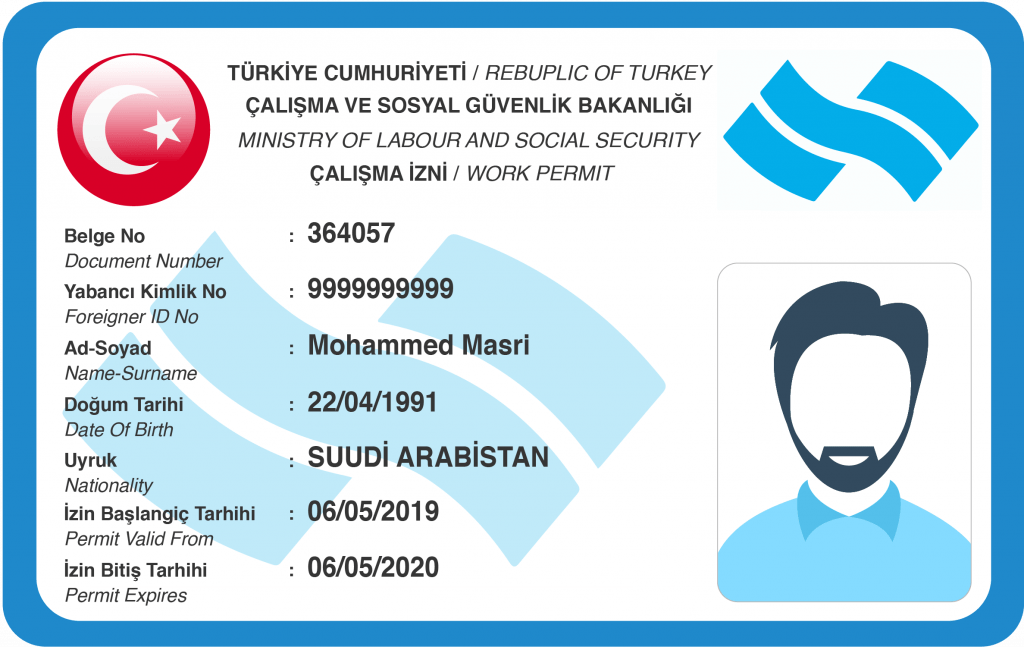Evaluating a company for acquisition in Turkey requires more than just glancing at balance sheets. In the high-stakes world of mergers and acquisitions Turkey, thorough analysis is indispensable. A pivotal first step is understanding company valuation Turkey. This offers insight into the company’s worth and potential. Equally essential is mastering the Turkish acquisition process, which can differ from global norms. Due diligence Turkey plays a critical role, ensuring all financial, legal, and operational aspects are closely examined. Neglect this, and you might find hidden challenges post-acquisition. As the business landscape continually evolves, understanding these elements can make the difference between a successful acquisition and a costly mistake. Whether you’re expanding your portfolio or entering a new market, adopting a structured approach to evaluate company acquisition Turkey ensures strategic growth and minimizes risks. With this framework, businesses can confidently navigate Turkey’s acquisition terrain.
Essential Financial Metrics to Assess Before Acquisition
When evaluating company acquisition Turkey, diving into financial metrics is like reading a company’s fortune. You’re not just looking at numbers; you’re uncovering the story they tell. Start with company valuation Turkey to get a handle on its worth, but don’t stop there. Look at revenue trends—is the company growing, stagnating, or declining? Examine profit margins to assess financial health and efficiency. Cash flow speaks volumes, showing whether a company can sustain operations without scrambling for funds. Debt levels offer a glimpse into financial obligations that might weigh down post-acquisition plans. Delve into return on investment ratios to understand how capital is performing. In the mergers and acquisitions Turkey landscape, these metrics are your compass, guiding strategic decisions and highlighting hidden strengths or potential pitfalls. Due diligence Turkey ensures that you leave no stone unturned, helping you navigate the Turkish acquisition process judiciously.
Understanding the critical financial metrics is key when you evaluate company acquisition Turkey. One of the first factors to consider is the company’s revenue, as it paints a clear picture of growth potential and market position. It’s essential to scrutinize the income statements closely. Consistent profits indicate stability, but be wary of fluctuating figures. Also, analyze the expense trends to uncover any potential inefficiencies that might hinder the company’s performance post-acquisition. Asset management becomes vital; you need to understand how efficiently the company uses its assets to generate revenue. Don’t overlook liabilities, as they can signal future burdens. Also, assess liquidity ratios to determine if the company can meet short-term obligations without straining resources. These insights are invaluable in the Turkish acquisition process and form the backbone of due diligence Turkey, giving you a solid foundation in the competitive realm of mergers and acquisitions Turkey.
Venturing into the merging waters of Turkey’s business territory demands a robust grasp of financial metrics. A pivotal element is understanding the company’s earnings before interest, taxes, depreciation, and amortization (EBITDA). This figure offers clarity on operational profitability, stripping away non-operational influences. In the same vein, scrutinize the net profit margin, a mirror reflecting how well a company converts revenue into actual profit. A low margin might hint at inefficiency or tight market competition. Next, evaluate the interest coverage ratio to see if earnings can adequately cover interest expenses. It’s a vital signpost in the Turkish acquisition process, forecasting future financial sustainability. Do not dismiss the price-to-earnings ratio, a compass for gauging investment attractiveness relative to earnings. These metrics provide a lens, offering a panoramic view of financial health necessary for strategic decisions in the intricate dance of mergers and acquisitions Turkey.
Cultural Considerations in Turkish Business Practices
Understanding cultural considerations is paramount when evaluating company acquisition Turkey. In the mergers and acquisitions Turkey sphere, being aware of business customs can significantly alter outcomes. Turkish business culture is rooted in strong relationships and trust. Just as company valuation Turkey is crucial, so is recognizing the importance of personal connections in the Turkish acquisition process. During due diligence Turkey, engaging with local experts can offer invaluable insights. Communication styles may differ, leaning toward formal and respectful dialogue. This approach fosters goodwill and aids in mitigating potential misunderstandings. While evaluating company acquisition Turkey, remember that cultural nuances can impact negotiations and integration post-acquisition. By appreciating these unwritten rules, you position yourself for a smoother acquisition journey, ensuring that cultural dynamics complement the overall strategic objectives.
In evaluating company acquisition Turkey, aligning with Turkish business practices is crucial. Each step from company valuation Turkey to the final handshakes relies on understanding these local intricacies. Within the Turkish acquisition process, hospitality plays a significant role. Business discussions often begin in informal settings over tea or meals, setting the stage for trust and collaboration. Such customs are not mere formalities but vital components that influence the tone of mergers and acquisitions Turkey. During due diligence Turkey, acknowledging these traditions can streamline operations and negotiations, paving the way for smoother legal and financial assessments. Recognizing the differences in leadership styles—where hierarchy holds sway—can further impact decision-making. Valuing these rich cultural practices is akin to reading the unspoken language that guides Turkish business. Embracing such norms can be the difference between success and stumbling blocks during company acquisition Turkey, making cultural fluency an asset in the intricate dance of acquisitions.
In the heart of evaluating company acquisition Turkey lies an appreciation for the country’s distinctive negotiation habits. This process, intertwined with company valuation Turkey, demands patience and adaptability. The Turkish acquisition process often involves extended discussions, allowing time for trust to develop. As with many mergers and acquisitions Turkey, the road is seldom linear. Engaging in due diligence Turkey without considering these conversational intricacies might lead to unforeseen challenges. Avoiding a one-size-fits-all approach and recognizing this fluidity can make all the difference. Just as one might dance to the rhythm of a traditional tune, adapting to the negotiation pace reflects respect and understanding of Turkish business ethos. This flexibility ensures that the dialogue aligns with cultural expectations, forming a solid foundation for successful company acquisition Turkey. By blending strategic acumen with cultural awareness, firms can position themselves for fruitful mergers and acquisitions in Turkey.
Navigating Legal Frameworks for Mergers and Acquisitions in Turkey
Navigating the legal frameworks for mergers and acquisitions Turkey demands precision and awareness. Turkey’s laws can be a maze, but understanding them is crucial for any successful evaluate company acquisition Turkey strategy. The Turkish acquisition process requires grasping local regulations, from antitrust laws to foreign ownership restrictions. Engaging with seasoned legal experts becomes indispensable to untangle these complexities. Due diligence Turkey isn’t just a financial practice; it’s about legal compliance too. Miss a legal detail, and future operations could face setbacks. Therefore, mastering these legal nuances not only shields interests but enhances strategic decisions. Efficiently navigating these frameworks in mergers and acquisitions Turkey secures a smoother transition and amplifies growth potential. Embrace this step with care to avoid unwanted surprises and ensure a legally sound acquisition journey.
Understanding the Turkish acquisition process isn’t just a tick-the-box exercise—it’s the backbone of any venture in evaluate company acquisition Turkey. With intricate regulations, this area can trip up even the most experienced players. Consider antitrust regulations and foreign ownership laws as puzzle pieces needing precise placement. Failure to piece them together may result in unforeseen complications. For this reason, deploying seasoned legal experts to dissect the nitty-gritty is a wise move. These professionals translate convoluted legal jargon into actionable steps, ensuring that due diligence Turkey extends beyond mere paperwork. A meticulous approach to mastering these laws reinforces the foundation of pain-free mergers and acquisitions Turkey. This foresight isn’t just a safety net; it’s a catalyst for strategic success and seamless integration into new markets.
Beyond just meeting the formal requirements, recognizing the implications of Turkish acquisition process helps streamline evaluate company acquisition Turkey strategies. It’s easy to overlook regional differences, but adhering to strict local protocols can save businesses from major pitfalls. In mergers and acquisitions Turkey, understanding tax obligations and employment laws is critical. Governments have specific requirements that vary and ignorance isn’t bliss here; it can cost you. Partnering with competent advisors aids in unraveling these layers, while consistent communication with local authorities provides a safety buffer against penalties. Due diligence Turkey must therefore be multifaceted, ensuring compliance not only with financial and legal standards but cultural norms as well. By respecting these nuances, firms pave a smoother path toward successful integration and growth within Turkish borders. Precision here mitigates complexity, transforming potential hurdles into calculated advantages.






